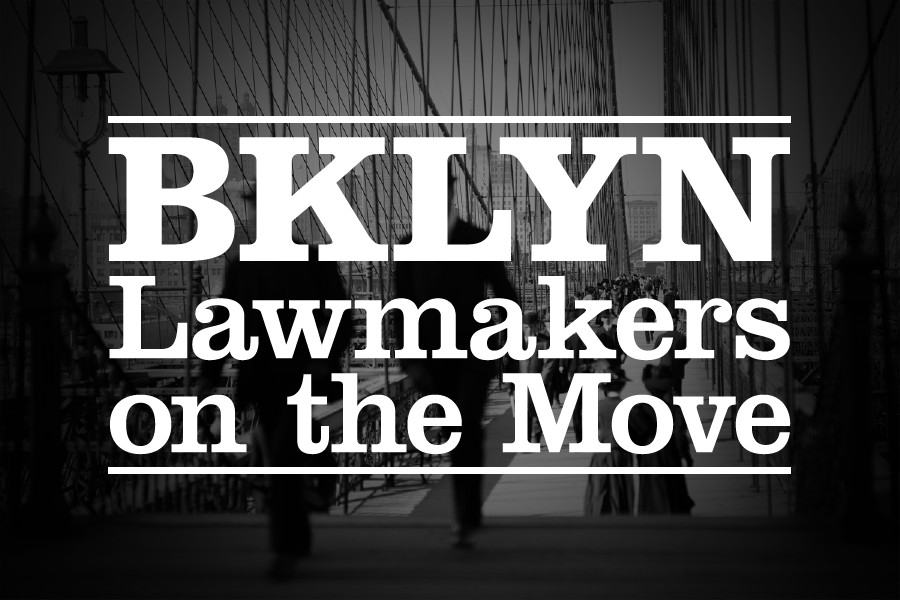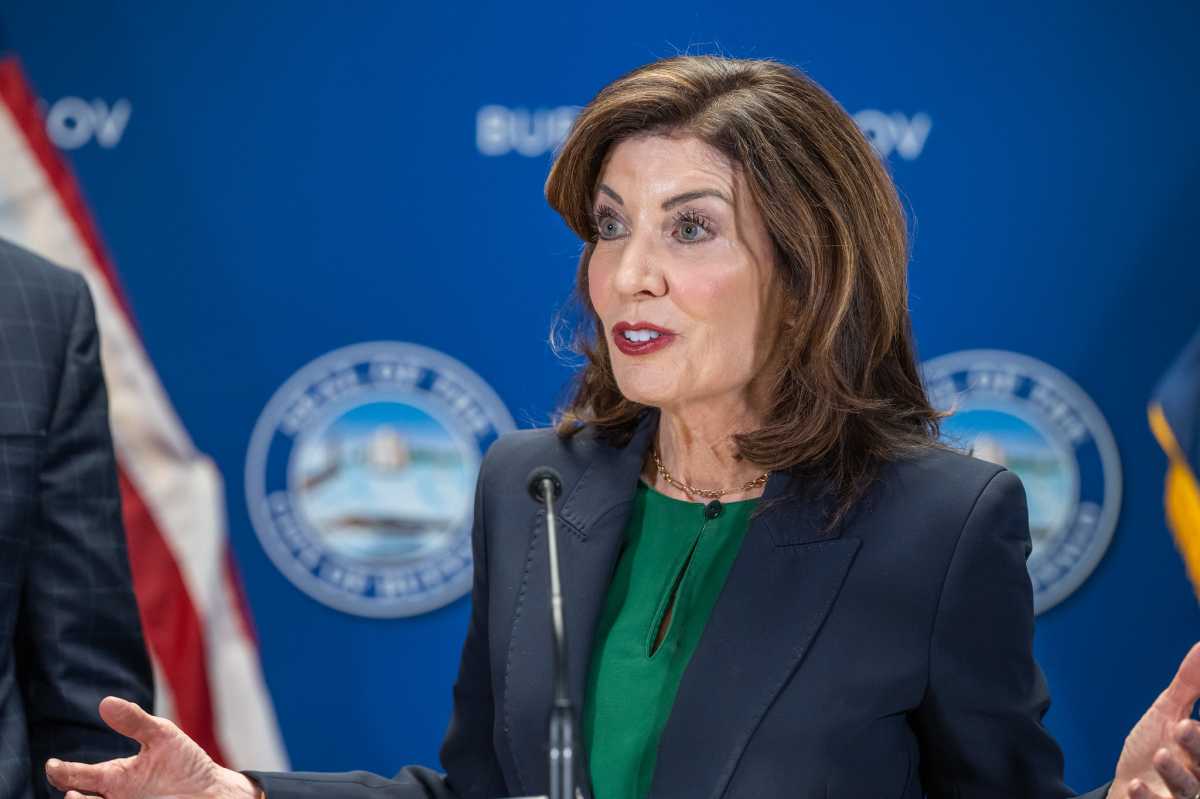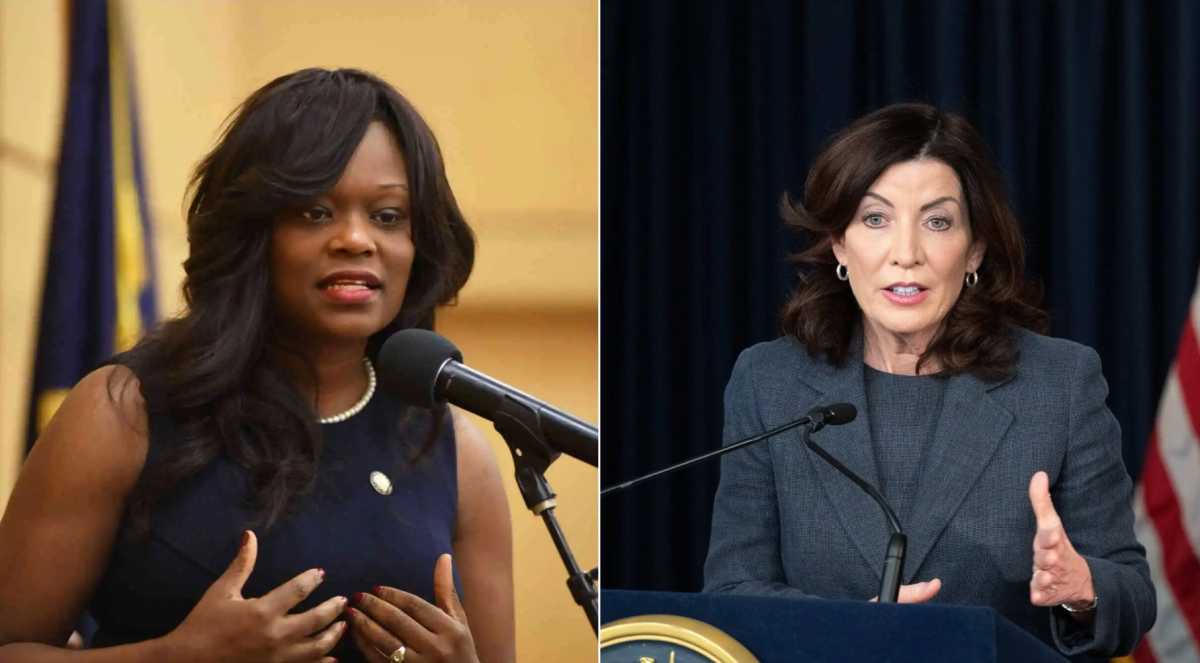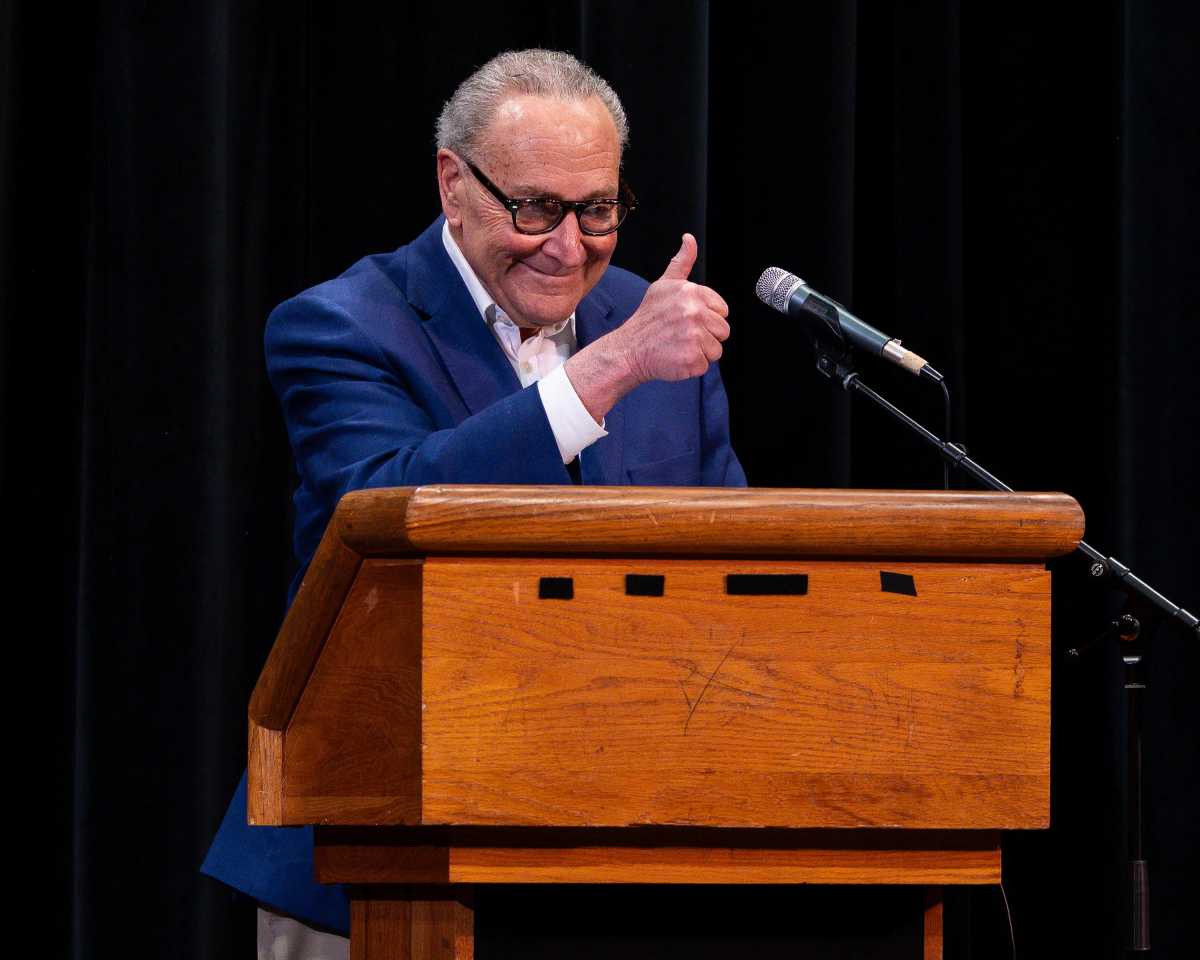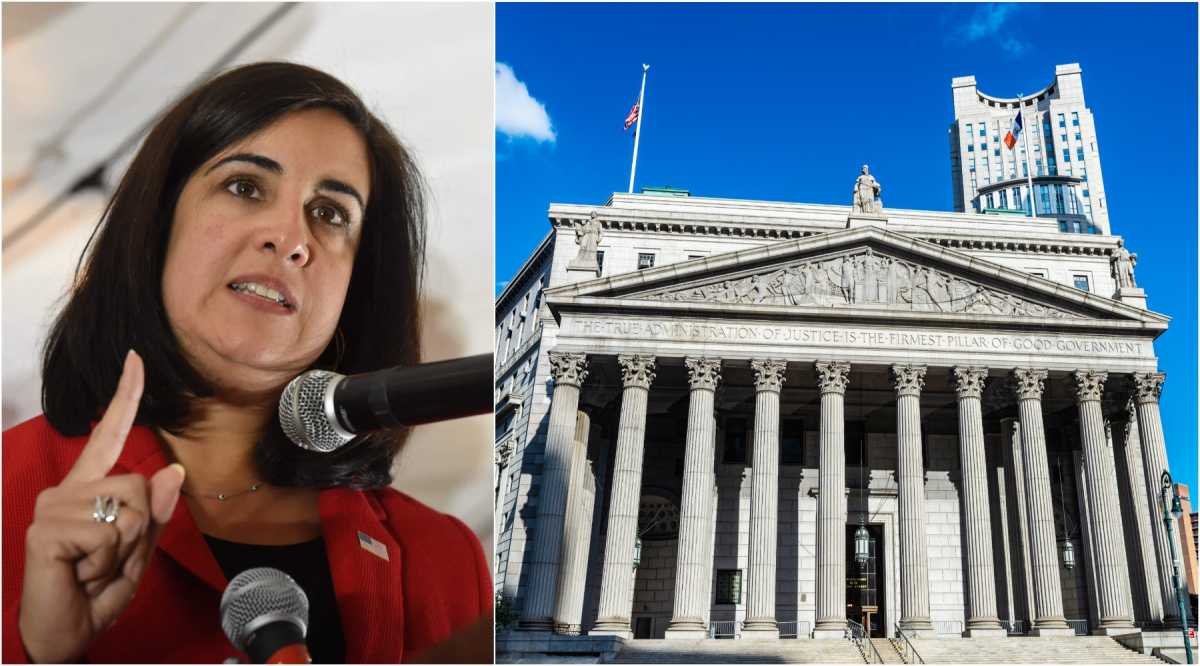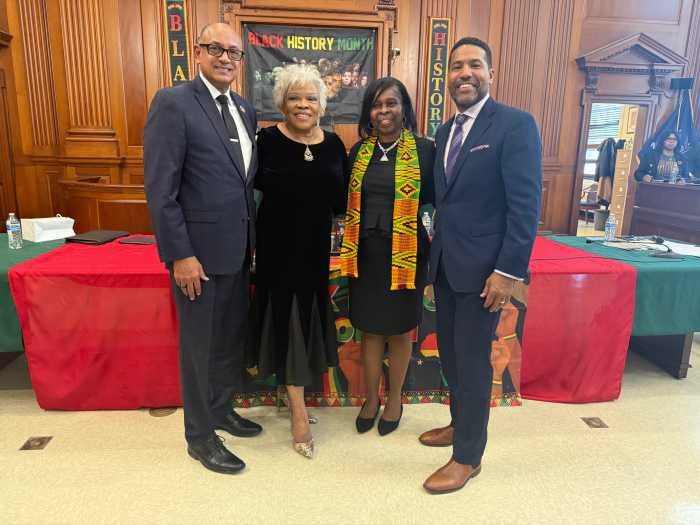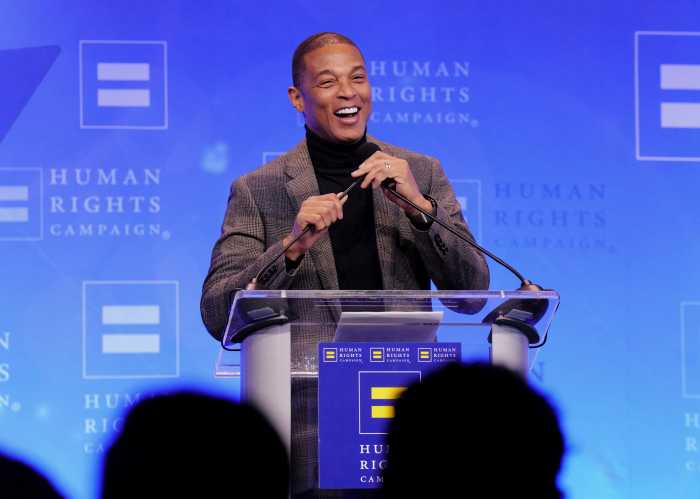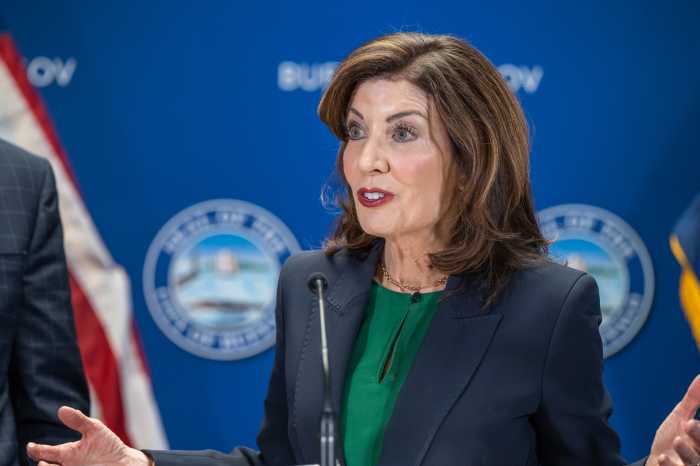Adams Awards Grants To Arts & Culture Organizations

Brooklyn Borough President Eric L. Adams and Brooklyn Arts Council (BAC) Executive Director Charlotte Cohen yesterday announced $22,500 in new Destination>Brooklyn mini-grants awarded to 15 local arts and culture organizations in support of cultural tourism across the borough.
Funded by the Office of the Brooklyn Borough President and the NYC & Company Foundation, the grant program, now in its fifth year, supports the promotion of local arts groups to a broader audience through the creation, production, and distribution of print promotional materials. To date, the program’s total investment to local arts and culture organizations is more than $160,000 since 2015.
“The cultural richness and artistic diversity throughout Brooklyn makes it a prime destination for those seeking innovative, eclectic, and transformative experiences,” said Adams. “This program has contributed meaningfully to the artistic enrichment and enjoyment of residents and visitors to our phenomenal borough.”
The arts and culture organizations receiving the grants include Arts Gowanus, Brooklyn Raga Massive, Continuum Culture & Arts, Green Earth Poets Café, Haiti Cultural Exchange, JACK, New York Art Residency and Studios (NARS) Foundation, PLG Arts, Inc., Regina Opera Company, Inc., Spellbound Theatre, The Afrolatin@ Project, Tiffany Mills Company, Wendy’s Subway, and What Will the Neighbors Say? Theatre Company.
Deutsch Parking Legislation Passes City Council

City Councilman Chaim Deutsch (D-Sheepshead Bay, Manhattan Beach, Brighton Beach, Homecrest, Midwood) this week saw the city council unanimously pass his legislation that will open up existing parking spots for New York City drivers when schools are not in session.
Currently, around every school building in the city are parking regulations that are intended to make student drop-off and pick-up safer by not allowing parking during school hours. These signs will generally say “NO PARKING SCHOOL DAYS”. During summer months, these regulations can often confuse drivers, who are unaware if they are permitted to park near a school building because there is no public information that indicates where active summer sessions are taking place.
Deutsch’s bill aims to resolve this with transparency, requiring the Department of Education (DOE) to compile a list of all summer sessions in city schools. The Department of Transportation (DOT) will then be required to list which of those buildings have active parking restrictions.
These lists will be made publicly available by June 30 of every year, so that drivers can easily search a location or call 311 to determine if it is permissible to park there during summer daytime hours. This will ultimately free up thousands of parking spots across the city, in areas surrounding public and charter school buildings.
The lists will also be made available to the Traffic Department, to prevent unwarranted violations from being issued to legally parked cars. With the current system, a driver who receives a violation for parking in a school zone would only be able to fight the summons by receiving a letter from the school administration indicating that they do not have active summer sessions. This process can often be time-consuming and frustrating.
“Lack of parking is a serious struggle for drivers throughout New York City, particularly in areas where there is a lack of mass transit access,” said Deutsch. “Opening up hundreds of existing parking spots throughout the city is an easy way to relieve that burden, at least for part of the year. Here in our city, the day to day pressures and stress can be overwhelming. I’m proud to have been able to pass a bill that endeavors to tackle that, and make life just a little bit easier for my fellow New Yorkers.
This bill, known as Introduction 0084, will take effect on September 1, 2019.
Clarke Floats Bill Banning Facial Recognition Technology In Public Housing

U.S. Reps. Yvette D. Clarke (D-Brownsville, Crown Heights, East Flatbush, Flatbush, Kensington, Midwood, Prospect Heights, Prospect Lefferts Gardens, Park Slope) Ayanna Pressley (D-MA) and Rashida Tlaib (D-MI) yesterday announced legislation that will protect public housing residents from being subjected to biometric technologies in their residences.
The “No Biometric Barriers Housing Act of 2019” will prohibit the usage of facial and biometric recognition in most federally funded public housing and will require the Department of Housing and Urban Development (HUD) to submit a report to Congress about how this emerging technology interplays within the public housing sector and its tenants.
More than two million residents live in public housing nationwide. In Clarke’s district, tenants at Atlantic Towers, a rent-stabilized community in Brownsville, spoke out against their landlord who wanted to install facial recognition technology in their apartment complex. This uproar from the community acted as a catalyst for Clarke to craft legislation on the Federal level to proactively address this concern in public housing.
“Someone living in public housing should not be the guinea pig for the emerging technology of biometric facial screening just to enter their own home, which is why I’ve drafted the ‘No Biometric Barriers to Housing Act,’ said Clarke.
“This technology in its current state has proven to be flawed–we know the accuracy of facial recognition technology significantly decreases when screening people of color and women. We also need safeguards for how collected biometric data is shared and stored. Only once we address these bias and privacy concerns can we have the conversation about public housing’s usage of biometric technology,” she added.
Treyger Applauds Re-Opening Of Lafayette Playground

City Council Member Mark Treyger (D-Coney Island, Bensonhurst, Gravesend) cheered yesterday’s re-opening of the Lafayette Playground four months ahead of the projected completion date.
The playground, located on Benson Avenue between Bay 43rd Street and Stillwell Avenue in Gravesend, had a full renovation to transform the under-activated asphalt space into a vibrant park, with amenities that can be enjoyed by all.
When the city’s Parks Department originally introduced its Community Parks Initiative to revitalize a number of parks across the five boroughs, southern Brooklyn was initially left out. Treyger engaged in an advocacy push to reverse decades of neglect for outer-borough green and recreational spaces, and secured funding for Lafayette Playground to be included in the initiative.
The renovated Lafayette Playground will have a brand new water bottle filling station; an urban lab; a new water fountain; an adult fitness area; a basketball court for the Lafayette Educational Campus high school teams; a picnic grove including new tables, game tables, benches and sitting areas; a shade structure; walking paths and new plants and trees.
“I’m elated to see this project finished so that the children, seniors and families in our community can enjoy the new and enhanced Lafayette Playground and green space. I have made it a priority to ensure our parks in Southern Brooklyn are receiving the care and investment that’s been missing for many years and that they become beautiful, well-maintained outdoor spaces for local residents to appreciate,” said Treyger.
Rose Slams Trump Administration On Importation Of Fentanyl

U.S. Rep. Max Rose (D-Southern Brooklyn, Staten Island) yesterday slammed the Trump administration for failing to stop illegal importation of fentanyl through John F. Kennedy International Airport (JFK).
Rose’s remarks came during a hearing he chaired to address the unprecedented opioid epidemic and urge action to stop the flow of illicit fentanyl into the United States. Rose highlighted the important role JFK plays in screening more than half of all international mail that arrives in the United States.
“My district has been one of the epicenters of the epidemic. I’ve spoken to too many mothers and fathers who have had to bury their child. So, are we seeing progress? Yes, but nowhere near enough,” said Rose. “I am concerned about a recent [Department of Homeland Security] Office of Inspector General report from last September which indicates DHS’s Custom and Border Protection’s mail inspection process needs improvement at JFK International Airport in New York City.”
Rose noted that with much of the illicit fentanyl arriving via international mail from China, this is concerning.
“Already, dealers on the dark web take advantage of the existing security gaps highlighted in the OIG report. They guarantee delivery of their illicit fentanyl and even offer replacing orders that do not arrive,” he said.


